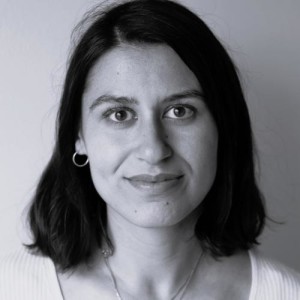At CENTR, when we talk about the future of the internet ecosystem, our mantras are education and dialogue. As a forum, EuroDIG facilitates this, while also serving as a reunion for familiar faces in European internet governance. Preaching to the choir helps sharpen talking points.
EuroDIG is an annual multi-stakeholder conference in Europe that closely follows the United Nations' Internet Governance Forum (IGF), though is smaller and more focused. It serves as a platform for collaboration and engagement, and contributes to the global internet governance dialogue while addressing European-specific challenges and opportunities. One of its standout goals is to nurture future generations of internet governance leaders via the YouthDIG programme. This year, EuroDIG took place in Tampere, Finland.
For the technical community, including ccTLD registries, participation in EuroDIG can be valuable: they contribute critical technical insights to discussions, enabling informed decision-making and fostering collaboration for effective solutions.
CENTR contributions
CENTR was represented in two sessions at EuroDIG. Polina Malaja spoke in a roundtable discussion on 'Mind the governance gap! Broadening the multistakeholder response to DNS-related cybersecurity threats', facilitated by the Dynamic Coalition on DNS Issues. The session's premise was that recent years have seen an energetic effort to combat 'DNS Abuse', mostly defined narrowly, but that beyond this issue, many governance gaps remain when responding to adjacent cybersecurity threats. The participants covered a snapshot of issues, from the recent Quad9/Sony case and the risks of fragmentation should distinctions between content-related issues and DNS-resolution be blurred, to the growth of so-called blockchain domains and their implications. Polina provided an overview of European ccTLD registries' approach to abuse, their compliance with and best practices under the NIS 2 Directive, as well as the Directive's extraterritoriality. Between existing regulation and emerging cybersecurity threats, governance gaps are widening, while multistakeholder processes are not always keeping the pace. However, recent progress at ICANN on DNS Abuse may enable the community to find the capacity to face new challenges. Existing practices amongst European ccTLDs (such as registration data accuracy practices) can continue to serve as a guidance for a diverse approach to tackling abuse that does not have one silver bullet solution.
Marlene Straub represented CENTR in the session ‘Efforts in shaping secure online environment by various DNS actors’, organised by the Dynamic Coalition on Data and Trust. Against the backdrop of the previous session, this panel addressed (self-)regulatory measures undertaken by DNS actors to increase registration data accuracy and its potential for law enforcement and cyber security organisations. After Marlene gave an introduction to data accuracy obligations in NIS 2, two CENTR members, Jordi Iparraguirre from EURid and Jaromír Talíř from CZ.NIC, each introduced their best practices, algorithmic tools and integrations with eID pilot projects, to achieve data accuracy. Daniel Överfjord of Loopia, a Swedish registrar, demo-ed how they have integrated the BankID system into their registration process to ease verification. These explanations were met by presentations from Europol and the Global Cyber Alliance, on how they work with registries and registrars to tackle illicit domains and malicious activity. The central takeaway from both sessions was that continued cooperation among stakeholders is key, especially when approaching the limits of the tools available to registries and registrars.
Unfortunately, neither panel was recorded, although recordings of other sessions are available on the EuroDIG YouTube channel.
Central themes
More broadly, the 2023 EuroDIG programme reflected the theme "Internet in troubled times: risks, resilience, hope". Many of the keynotes reflected a gloomy outlook. Andrew Sullivan, President and CEO of the Internet Society, for example, declared that the internet would not break suddenly, but rather by a gradual loss of global consensus on the value of the free, open and interoperable internet. Like frogs in boiling water, the audience was called upon to take responsibility for undoing harmful trends in top-down governance. Many of these harmful initiatives were found on the agenda – from the proposal for a ‘fair share’ contribution of Big Tech to Big Telco, to the European Commission’s draft Regulation to Prevent and Combat Child Sexual Abuse online.
Internet fragmentation, meanwhile, was a dominant subject at EuroDIG 2023 and occupied the main auditorium for an entire afternoon. Subdivided into the dimensions #Risk, #Resilience and #Hope, variations of the same conversation were had among familiar faces, who tended to agree: there is no technical fragmentation, only political fragmentation, which, as Andrew’s keynote pointed out, may break the interoperable internet slowly and painfully. Notable highlights include potential contributions of new multistakeholder instruments, such as the Global Digital Compact (see CENTR’s contribution), although its impact is entirely speculative at this point – it will be what the global community makes of it.
Finally, the agenda also included subjects not traditionally associated with internet governance, though currently very salient, such as AI and platform regulation, or news literacy to counter misleading information. While the agenda at EuroDIG 2023 highlighted the importance of addressing core internet governance questions within a broader political context and considering new digital technologies and dominant actors, it also signifies that the technical community continues to play a vital role, even as technical internet governance questions take a backseat. The active participation of organisations such as the Internet Society, ICANN, RIPE NCC and various CENTR members in a diverse range of sessions unrelated to technical internet infrastructure underscores the need for the participation of technical experts across a wider spectrum of issues.


